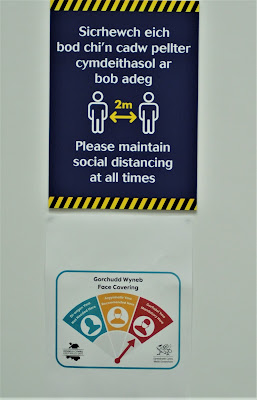This blog may help people explore some of the 'hidden' issues involved in certain media treatments of environmental and scientific issues. Using personal digital images, it's also intended to emphasise seasonal (and other) changes in natural history of the Swansea (South Wales) area. The material should help participants in field-based modules and people generally interested in the natural world. The views are wholly those of the author.
Tuesday, 6 July 2021
A Calculated Risk?
The new UK Health Secretary wants the country to 'learn to live' with the Covid19 virus. He approves stopping most pandemic-related restrictions on 19th July. The Health Secretary admits, this might result in the number of Covid cases climbing to 100,000 a day over the summer. This is higher than the previous peak of 81,000 per day, seen in December 2020. The UK will then be simultaneously one of the least regulated countries, with one of the highest transmission rates of Sars-CoV-2 (https://www.theguardian.com/world/2021/jul/06/covid-cases-rise-above-100000-a-day-sajid-javid-concedes-england). Up to 100,000 daily cases is viewed as 'acceptable'. This is, because vaccinations will markedly reduce (but certainly not abolish), subsequent hospitalisations and deaths. The Health Secretary accepts that vaccinations will not stop people passing on the Covid19 virus. He is also aware that higher levels of infections, provide the virus with more opportunities to produce new problematic variants. Risks have been calculated from models (always a bit dodgy). It seems that 'freedom' was given a higher weighting than 'health'. This is likely to go down well internally but other countries might judge the UK to be 'playing with fire'. The UK is unlikely to be thanked, if a vaccine-resistant variant develops in its 'summer of freedom'. Asking people to take personal responsibility for safety, also seems a tad optimistic. Different people will behave in different ways.
Subscribe to:
Post Comments (Atom)
-
I n the UK and US, a pparently popular and successful vegan/vegetarian restaurants are reportedly closing or adding meat to their menus ( ...
-
Early ripening fruit may seem convenient but some folk think it confirms environmental stress. There's also a possibility th...


%20mating%20NWCW.jpg)


No comments:
Post a Comment